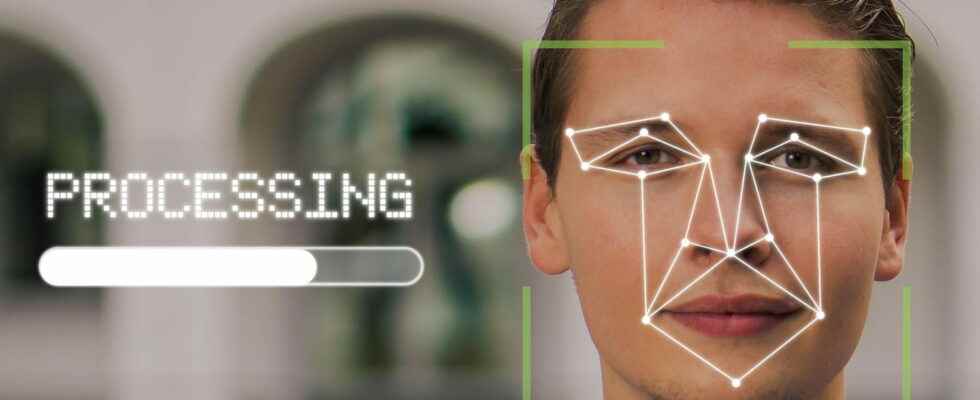Thanks to facial recognition, the PimEyes search engine can find photos and videos published on the Internet from a face. A formidable effective tool, which opens the way to worrying abuses…
You are probably familiar with the principle of facial recognition. Used in many fields related to security, this face analysis technology makes it possible, for example, to identify intruders during offenses using video surveillance cameras, to cross a control gate in an airport. or even, in a more everyday register, to unlock a smartphone or a computer, without entering a code. Integrated into many specialized devices, it is also used in applications for the general public – such as Facebook, which uses it to identify friends – but also accessible via online services, via search engines allowing people to be found from an image of their face. The problem is that some are so effective that they become worrying.
PimEyes: a terribly effective facial recognition tool
This is particularly the case of PimEyes, a powerful online service that is currently making headlines. Accessible to everyone – unlike the famous Clearview AI, which is reserved for law enforcement – for a subscription of 30 dollars per month – or around 30 euros – this search engine is worrying about its performance. Especially since its operation is very simple: just submit a face for the PimEyes facial recognition algorithm to find all the photos and videos published on the Internet where the person appears. And PimEyes is so effective that it is able to identify people in images where they appear wearing glasses or a cap! It’s hard to fool him…
PimEyes only lists images published on the Internet and available to the public, avoiding photos on social networks such as Twitter, Instagram or Facebook if they are put in private mode. The official goal is to be able to monitor one’s online reputation by knowing where a person appears on the Internet, as software director Giorgi Gobronidze, a 34-year-old Georgian, explains in the FAQs of the motor : “HASWith PimEyes, you can check which accessible websites have published photos containing a given face. You can use this information to track down images that were posted without your consent and defend against scams, catfishing or identity theft.”
PimEyes: very indiscreet uses
However, nothing prevents Internet users from using this tool for malicious purposes. It is possible, for example, to search for photos of any person since it is enough simply to tick a box affirming that you are indeed the person in question to access the data of PimEyes.
The journalists of New York Times decided to test the capabilities of the search engine and the different uses that can be made of it. And the least we can say is that PimEyes is very efficient, detecting faces in photos of weddings, parties, festivals or even in the background of a tourist photo. But some photos are more problematic, and the diary reveals disturbing stories. One of the testers admitted to having used the engine to identify people with a nickname who harass him on Twitter. Another says he discovered the real identities of porn actresses and searched for explicit photos of his acquaintances Facebook. An American computer engineer tested the tool with one of her photos and had the misfortune to find a pornographic video she didn’t know existed. She therefore tried to erase it by paying, but the journalists of the New York Times were able to find the video a month later… The absence of control therefore makes it easy to find a face that is not hers, and it have to pay again to be able to remove an incriminating photo from the Internet.
A worrying record, especially since PimEyes has tens of thousands of subscribers, most of them located in the United States and Europe. The engine is currently under investigation in Germany for violations of European privacy law. It is therefore essential to be very careful about what you and your loved ones post on the Internet, because it can remain for life and put you in very compromising situations.
